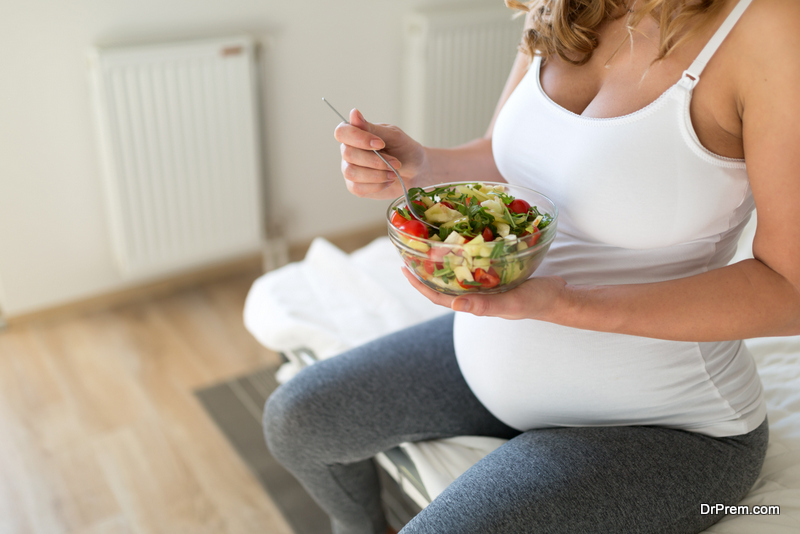11 must-have foods for pregnant women
You have just realized that you are pregnant and now you are filled with apprehensions and excitement. But often, in that excitement or worry, you might end up ignoring your health. Or you might be extra careful about everything around you, but what about that one thing which is of utmost importance? Your food.
Now that you are in the early stages or the first trimester of your pregnancy, so you must take care of your health. At the same time, you must become aware of certain foods for pregnant women that are a must during the first trimester of your pregnancy to ensure that the baby’s growth and development is all positive.
Also, you must know more about what your diet must consist of so that you can tackle common pregnancy problems like fatigue, nausea during the first trimester. Herein, we have combined a list of foods for pregnant women that you must eat during the first trimester of your pregnancy. Yes, you can take care of the crazy pregnancy food cravings, but see beyond chocolates and ice creams and start a diet that will provide enough nutrients and energy to you and the baby.
Breakfast cereal
 Folic acid and vitamin B12 are crucial for a pregnant woman. This is because they synthesize blood and help in maturation of red blood cells. Any deficiency of folic acid can lead to birth defects in the baby such as malformation or congenital deformities of the spine, skull or brain. Therefore, having a diet rich in folic acid is important during the first trimester.
Folic acid and vitamin B12 are crucial for a pregnant woman. This is because they synthesize blood and help in maturation of red blood cells. Any deficiency of folic acid can lead to birth defects in the baby such as malformation or congenital deformities of the spine, skull or brain. Therefore, having a diet rich in folic acid is important during the first trimester.
Doctors advise that a pregnant woman must have 400 mg of folic acid each day during the first trimester of pregnancy. You can get folic acid and vitamin B12 in your diet by eating breakfast cereals or fortified breakfast cereals. Most of the cereals generally contain about 400 mg of folic acid per bowl. To ensure that you get the required amount of Folic acid, refer to the nutritional information section on the cereal’s packet. Get an additional 200 mg from foods high in folic acid including black-eyed peas and asparagus.
Dried beans and lentils
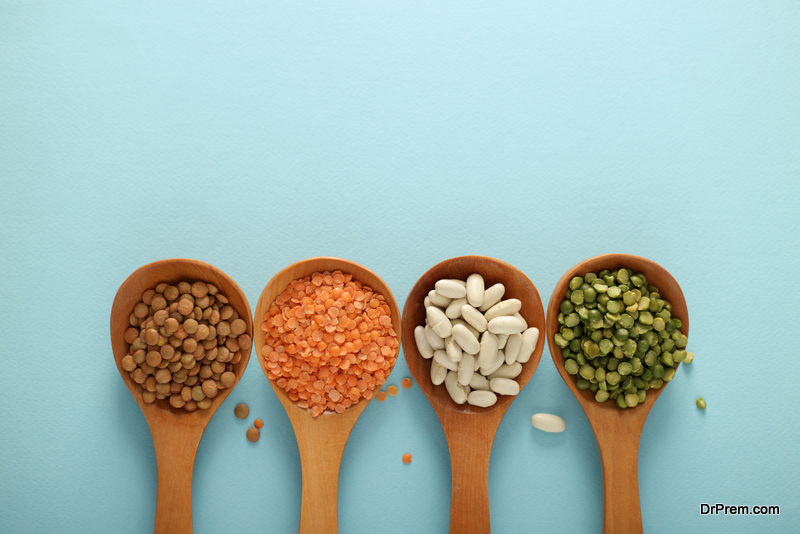 The baby develops the fastest during the first trimester of pregnancy. So, during this period, you need to eat a diet high in protein to ensure that your baby grows well. Experts recommend that a pregnant woman needs about 10 gm extra of protein each day during the first trimester. Therefore, an average woman would need a total of 60 gm of protein in her diet.
The baby develops the fastest during the first trimester of pregnancy. So, during this period, you need to eat a diet high in protein to ensure that your baby grows well. Experts recommend that a pregnant woman needs about 10 gm extra of protein each day during the first trimester. Therefore, an average woman would need a total of 60 gm of protein in her diet.
To ensure that you get this amount, you must eat foods like beans and lentils that are an excellent source of protein. A cup of beans or lentils contains about 15 gm of proteins. So, to meet your daily requirement add at least a cup of beans to your diet. You can add it in your salads or you can cook, boil or add beans into your favorite dishes. Dried beans and lentils are not pricey and they are easily available at all supermarket and stores. But make sure that you buy high-quality lentils – they are one of the most nutritional foods for pregnant women.
Milk
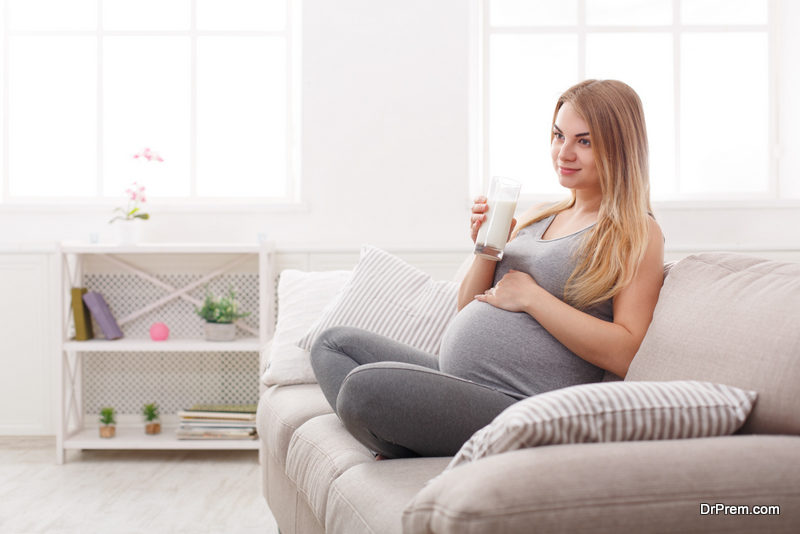 We all know that milk is vital for an infant’s growth and development. But even during pregnancy, you must drink lots of milk so that your baby’s vital organs and develop perfectly. Although, during pregnancy, your body absorbs twice more calcium from food than it normally does, yet you need more calcium-rich foods during the first trimester. This is because generally, women don’t take enough calcium.
We all know that milk is vital for an infant’s growth and development. But even during pregnancy, you must drink lots of milk so that your baby’s vital organs and develop perfectly. Although, during pregnancy, your body absorbs twice more calcium from food than it normally does, yet you need more calcium-rich foods during the first trimester. This is because generally, women don’t take enough calcium.
Experts recommend that a pregnant woman must have at least 1000 mg of calcium in a day. Therefore, you must drink milk each day. Don’t go for full-fat milk. Rather opt for fat-free milk or choose the low fat or toned milk options. An 8-ounce glass of milk will provide you about 30 percent of your daily calcium requirement. Ideally, you must drink at least two glasses of milk each day.
Bananas – one of the most healthy foods for pregnant women

For more than 70 percent of women, the first trimester of pregnancy is marked with nausea, fatigue, and restlessness. This is because your body is constantly changing to adapt to the needs of the baby growing inside you. Therefore, you need to include potassium-rich foods in your diet to deal with these changes and tackle the fatigue.
For this, experts recommend that you must eat at least one banana each day to fight pregnancy fatigue and to keep yourself strong and healthy. Moreover, bananas also help you fight nausea symptoms, especially when taken on an empty stomach. Many women may not love the taste of banana. So, you can add them to your favorite cereal, mix them with orange juice or whip into a smoothie. Else, you can have a single banana with milk each day.
Salmon
 Although saturated and trans fatty acids are not recommended during pregnancy, you need to eat unsaturated fats during the first trimester of your pregnancy, as these fats are healthy for you and the kids and they are one of the most essential foods for pregnant women. Fats like omega 3 fatty acids help in the development of the body organs of your baby and also helps you deal with the pregnancy fatigue. Moreover, such fats boost your baby’s development of the nervous system.
Although saturated and trans fatty acids are not recommended during pregnancy, you need to eat unsaturated fats during the first trimester of your pregnancy, as these fats are healthy for you and the kids and they are one of the most essential foods for pregnant women. Fats like omega 3 fatty acids help in the development of the body organs of your baby and also helps you deal with the pregnancy fatigue. Moreover, such fats boost your baby’s development of the nervous system.
The best source of essential fatty acids is salmon. Eating some salmon as a part of your diet will help your baby’s brain develop. But eating lots of fish during pregnancy can do more harm than good as fishes may contain mercury. Therefore, doctors recommend that you must not eat more than 12 ounces of salmon in a week to reduce the intake of mercury. Have salmon with a whole grain wrap or have in the entree salad.
Eggs
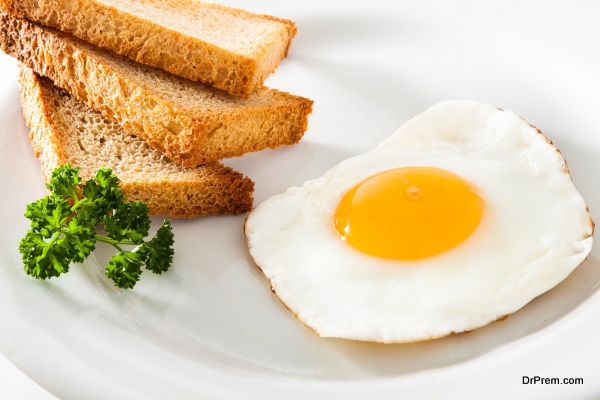 Choline is a type of Vitamin B that is required for fetal brain and memory development. But during pregnancy, this vitamin can be wiped out of your body. Therefore, you need to eat foods that supplement this vitamin to keep track of your baby’s brain development. Thankfully, the best way to boost the presence of Choline in the body is to eat eggs.
Choline is a type of Vitamin B that is required for fetal brain and memory development. But during pregnancy, this vitamin can be wiped out of your body. Therefore, you need to eat foods that supplement this vitamin to keep track of your baby’s brain development. Thankfully, the best way to boost the presence of Choline in the body is to eat eggs.
The egg yolk contains choline. So, prepare a whole egg including whites and yolk. But the yolk needs to be eaten in moderation. Instead of having too many eggs, eat just one boiled egg or have an omelet made of 2 egg whites and one yolk. You can prepare an egg batter and eat it with a slice of whole grain bread or else you can hard boil the egg and slice it for using in your salads.
Yogurt
 Zinc is essential for the baby’s development as it helps in the growth of tissues and cells. At the same time, it also helps to repair the damaged tissues and cells in your body. Zinc is also responsible for creating the genetic road map or DNA of the baby. Therefore, including zinc in your diet can act as a boon for your and the baby. For this, you must eat yogurt.
Zinc is essential for the baby’s development as it helps in the growth of tissues and cells. At the same time, it also helps to repair the damaged tissues and cells in your body. Zinc is also responsible for creating the genetic road map or DNA of the baby. Therefore, including zinc in your diet can act as a boon for your and the baby. For this, you must eat yogurt.
This creamy dairy product is not just an excellent source of zinc, but it is also an excellent source of calcium, which is responsible for making your baby’s bones stronger. Plus, yogurt contains probiotic bacteria that have a strong advantage for pregnant women. This probiotic bacteria eases the process of digestion, checks digestion and also boosts immunity. But not all types of yogurt have this bacteria. So, when you go to a supermarket, check out for the label that says, ‘live active cultures,’ to receive maximum benefits from yogurt.
Lean Meat
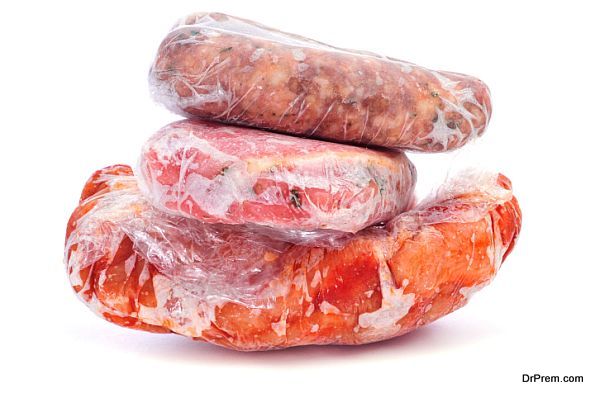
During pregnancy, you need more iron to deal with fatigue and tiredness. In the first trimester of the pregnancy, your body needs almost twice the iron than you normally take. Therefore, you must opt for iron-rich foods. So, include lean meat in your diet. Lean meat is not just an excellent source of iron, but its iron content can be easily absorbed by the body. Don’t go for fatty meats because they don’t have much health benefits and also because you must avoid too fatty, cholesterol-laden foods during pregnancy.
If you are a vegetarian, then you can eat green leafy vegetables, at least two servings to have more iron in your body. Remember, if the iron in your body depletes, then you will feel more tired and fatigued. Lean meat and green vegetables are not costly and are easily available.
Oranges

During pregnancy, especially during the first trimester, you are more prone to catching colds and flu because of constant changes in your body. But because you are pregnant, you cannot take any over the counter medications to deal with such common illnesses. Instead, you need to have a higher intake of vitamin C which will boost your immunity and help you deal with colds and flu. It must be remembered that colds during pregnancy can lead to serious complications like pneumonia or bronchitis.
So, have a diet rich in vitamin C. Opt for products like tangerines or oranges to boost your Vitamin C levels. Although oranges are an easy find in any supermarket, you must choose Florida oranges because they have about 3 times more vitamin C than other types of oranges. You can add seedless wedges of oranges in your breakfast cereal or your salads.
Garlic

Some women can develop serious medical implications during pregnancy, including gestational diabetes and high blood pressure. If you want to avoid high blood pressure or wish to deal with this condition during pregnancy, then you must take garlic from the first trimester of your pregnancy. Garlic helps in coping with high blood pressure and also reduces the risk of preeclampsia, a condition wherein pregnant women develop hypertension. Over half of the cases of preeclampsia are caused due to high blood pressure.
Therefore, introducing a few pieces of garlic in your meal can be highly beneficial. Garlic helps not only during pregnancy but even post-pregnancy. Garlic helps to reduce the chances of heart disease due to preeclampsia. Also, garlic helps in dealing with a mild case of bad breath. You can easily find garlic in any store and you can add just a little bit in your pizzas, scrambled eggs or snacks for maximum benefits.
Almonds

Almonds are small, but they are packed with nutrition. They are loaded with magnesium, fiber as well as vitamin E and protein. Vitamin E is responsible for your fitness and the health of your baby. Meanwhile, fiber can help in dealing with constipation. Several kinds of research suggest that pregnant women who eat almonds at least during the first trimester of their pregnancy tend to have healthier kids. Eating almonds during pregnancy also reduces the risk of developing asthma and allergies in children. Therefore, you must eat about 10 to 20 almonds each day. Add them to your cereal or just crush them and coat in on the meat. Another option is to sprinkle it on food salad or just have them as a snack.


